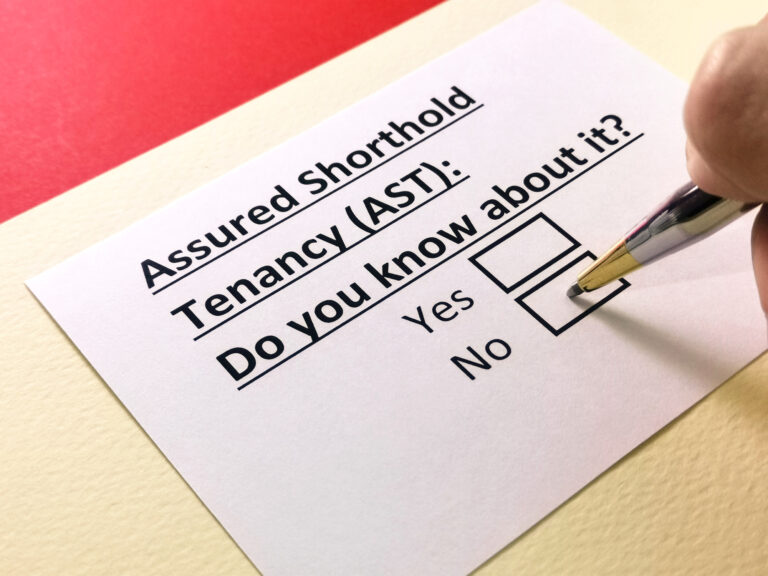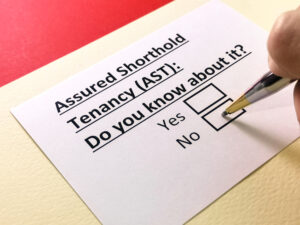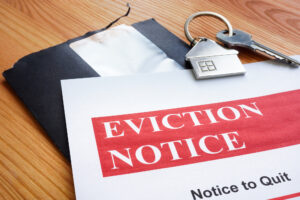Eviction: What is it and how does it work ?
There are laws that allow private landlords to regain possession of properties they rent out. The process of eviction can take months or even a year, depending on the grounds. Expedited eviction may be an option in urgent cases.
Before an eviction can take place, many steps must be completed. As a starting point, the tenant must be notified of the intention to evict.
An eviction is decided by the court unless it is agreed by both tenant and landlord. The documents and claims are reviewed by the court. Afterward, they can determine if eviction is justified.
In the case of a successful eviction, the landlord can obtain enforcement assistance through the city’s bailiffs.
Note: Eviction results in homelessness, which is a very serious matter. Legal help is crucial if you’re being evicted.
What are the reasons your landlord can evict you for?
It is possible to be evicted for a number of reasons, but the most common are:
- Breach of contract eviction
By evicting bad tenants, the eviction procedure protects the property. You may be evicted if you violate your tenancy agreement. The landlord can take possession of the property if the tenant damages the furniture or construction.
Alternatively, if the tenants are in arrears for more than two months, or engage in antisocial behavior, disturbing the peace in and around the property, they may be evicted.
While there are minimum periods to follow, the quicker the eviction procedure can take effect, the more serious the issue.
A section 8 eviction notice is served in this eviction.
- No fault eviction
Renters can be evicted even if they have done nothing wrong. They may be evicted on the day or after the expiration of their fixed period. A property owner can use so-called “no fault eviction”, if all the correct procedures are followed. Tenants are given a reasonable amount of time to find a new home, arrange their move, and depart.
This notice may be served by a landlord soon after the tenancy begins to declare that the tenancy will end at the end of the fixed term.
A section 21 eviction notice is served in this eviction.
- Repossession of property
It is possible for a landlord to lose their property to another party. Typically, this happens when the mortgage on the property falls behind and the landlord falls behind with the bank. When such a change in ownership occurs, the tenant may be evicted.
Harassment by landlords
Tenant contracts are abused by some landlords by using eviction as an instrument of eviction. Some landlords manipulate tenants by using fear of homelessness and forcing them into bad deals. For instance, a landlord would often force tenants to pay higher rent, or face eviction. Tenants might also be threatened with eviction if a landlord disregards maintenance and repairs.
If you feel like your rights are being violated, your landlord is evicting you as harassment, or the procedure of eviction is being conducted incorrectly.
The landlord can use Section 21(1)b for fixed-term tenancies.
The owner must use a different route if he wants to evict before the fixed term is over – a section 8 notice. Generally, a Section 8 notice is issued when a tenant has broken the terms of their contract – for instance, when they are two months behind on their rent. To obtain a possession order, there are several other uses; however, all of them require solid grounds that must be presented to the court.
Is it possible to stop or delay an eviction?
Evictions are subject to strict procedures. The landlord must have managed the property in a fair and equitable manner. A landlord’s ability to evict tenants depends heavily on the protection of the tenancy deposit.
A valid section 21 notice will not be valid if the deposit has not been protected, the procedure is incorrect, or the information has not been provided within 30 days. You cannot be evicted even if you are served with one.
If the landlord fails to follow the right steps, the process can be re-started. It is the tenant’s responsibility to examine all eviction documents for errors and to challenge any found.
A tenant can defend their case in court if they want to fight the eviction for any reason. If the issue cannot be resolved directly with the landlord, it’s best to contact him/her directly for assistance.
A property owner can quickly take possession of a property if there is damage, disruption, or arrears. The chances of stopping an eviction are slim where a tenant has caused harm to the property or landlord. The tenant may be given more time to arrange their affairs by delaying the move.
A court can effectively deny possession claims in cases where tenant rights have been violated and proof is provided.
Legal aid should be sought if you want to challenge an eviction in court. If you don’t have experience or knowledge of landlord and tenant law, you may end up homeless.
In the event of eviction, what are your rights as a tenant?
The landlord still has the right to evict you even if he has filed an eviction notice and claimed possession of the property. Accordingly, you are entitled to all your tenant rights as described by law.
If you are being evicted, your right to privacy is paramount. It is impossible for your landlord to physically remove you from the property, even though he wants and is trying to do so. It is possible, in fact, for tenants to bar even the police from the property they rent without a court order.
A landlord may apply for a “warrant of execution” after the court grants them a possession order. As a result, bailiffs will enter the property to remove the tenant and their belongings.
In case of an emergency, the landlord will have access. For example, a gas leak or fire could be harmful.
It is against the law for bailiffs, landlords, or their associated employees to use force against tenants.
What should you do if you're homeless?
You should focus on finding a reliable place to live if you’re evicted, rather than fighting your landlord. See if any of your family or friends can provide you with a bed at their house first.
Stay with someone who will allow you till you are able to stand on your own two feet. Rather than worrying about having a roof over your head at night, you can focus on how to get back to financial independence.
Look for a room if you have no one to ask:
- Hostels
- Hotel with a bed and breakfast
- Renting a room on a day-to-day basis
- Online couch surfing
- Housing provided by the government
A local council must provide assistance if you can’t find housing or can’t afford it. You may be provided with temporary housing, depending on the reason you became homeless and your situation – e.g. whether you have children or not.
Disclaimer
The purpose of this article is to provide guidance. The information provided should be used for research purposes, and not as a basis for bringing legal action. No legal advice is provided by The Tenants Hub, and The Tenants Hub’s content does not establish a client-solicitor working relationship.


